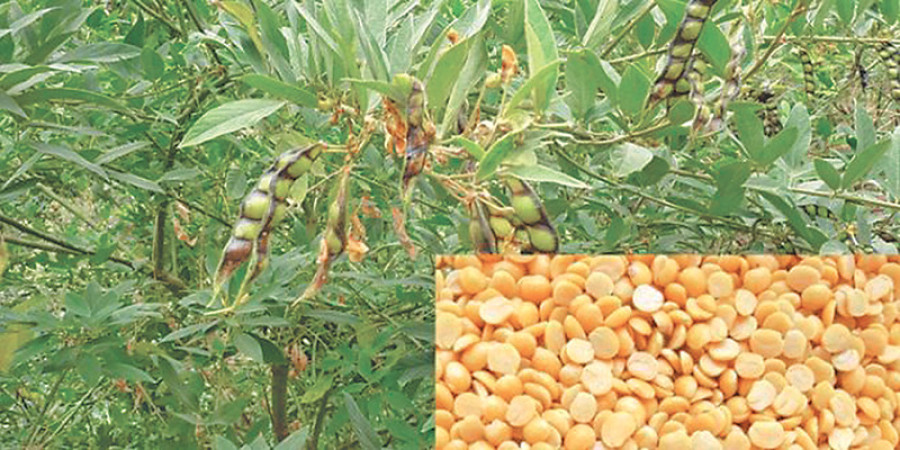Money
Red gram farmers upset after prices plunge 70pc
Prices of red gram (rahar) have plunged 70 percent over the past year, hitting farmers hard as imported pulses have flooded the market. Farmers said that prices fell to Rs65 per kg during the harvest season, and then dropped further to Rs40 per kg.
Dilli Ram Khatiwada
Prices of red gram (rahar) have plunged 70 percent over the past year, hitting farmers hard as imported pulses have flooded the market. Farmers said that prices fell to Rs65 per kg during the harvest season, and then dropped further to Rs40 per kg.
Cheaper red gram has made consumers happy, but farmers are deeply worried as the crop is their main money maker. Farmers are concerned that prices may go down further.
Last year, the retail price of red gram in the local market was Rs140 per kg. Farmers said that at current prices, they would be incurring a loss of Rs35 on every kg sold.
Red gram farming is the key livelihood of farmers in Katari, Triyug, Chaudandigadi and Bell municipalities located along the lower belt of the Mahabharata range.
Farmers had switched to growing red gram instead of mustard after the income from red gram doubled.
The Mahabharata range produces high quality red gram. “As demand and prices both rose, we were encouraged to cultivate red gram,” said a local farmer Lokman Sarki. “Last year, I sold red gram at Rs140 per kg in the Beltar market,” he added. “The price has fallen to a low of Rs40 per kg now.”
If the production cost of red gram is calculated, it comes to almost Rs80-90 per kg, farmers said. They said that imported pulses sell for Rs120 per kg in the market.
Prices of pulses like lentils, black gram and kidney beans are still high in the market, but the price of red gram produced by farmers has fallen to its lowest, said another farmer Chaturman Danuwar of Katari Municipality.
“Initially, during harvest time, red gram cost Rs65 per kg. However, farmers started stocking their harvests to wait until prices rose. Now, they are forced to sell their crops for half of the production cost.” Farmers have accused middlemen of creating a cartel and making them suffer.
Suresh Gupta, a wholesaler, said that the local market had been flooded with imported pulses. “As consumers prefer packaged and shiny products, the locally produced red gram is less attractive to them.”
However, in terms of nutritional value, locally produced red gram is far more nutritious and tastes much better than imported pulses, he said.
“We supply imported products based on demand. There is very little demand for local products.” Farmers said that their products would be valued if imports were restricted. They said that the concerned authorities should eliminate the influence of middlemen in the farm sector to benefit farmers.




 9.12°C Kathmandu
9.12°C Kathmandu















